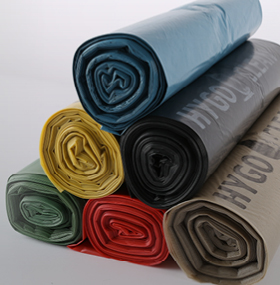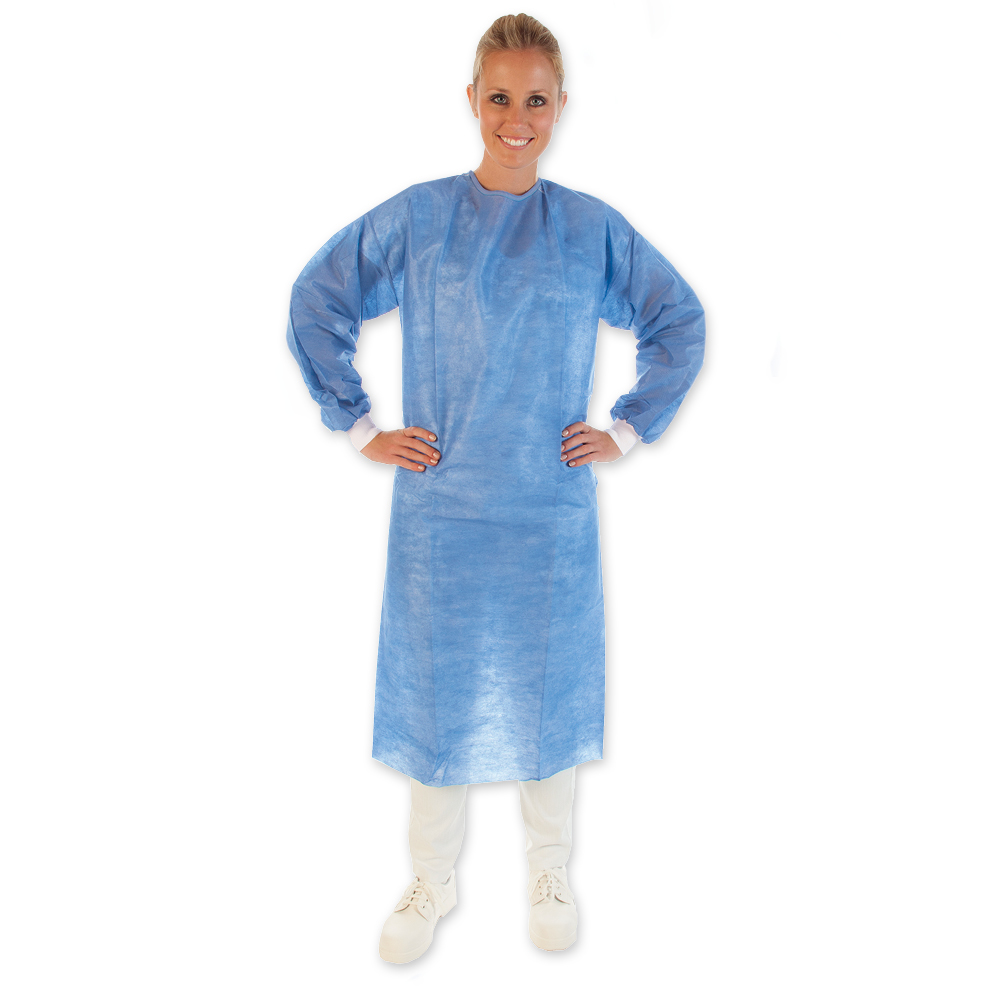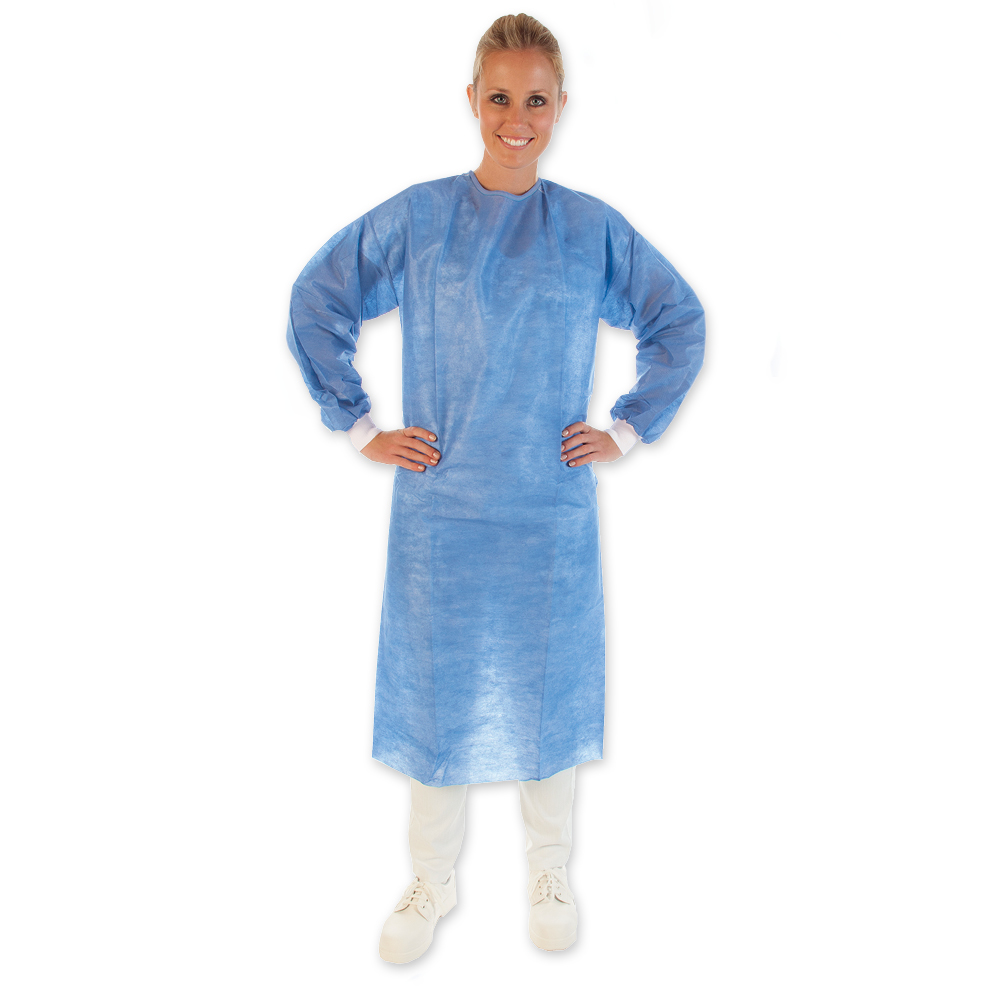Surgical gown
Disposable surgical gowns and surgical coats prevent the transmission of germs during operations and medical treatments. When it comes to surgical gowns, you can rely on high quality that provides both the necessary barrier effect and a high level of comfort. Discover sterile and sterilisable surgical gowns at very affordable manufacturer prices here.


Surgical gowns for medical professionals
Discover first-class surgical gowns for the highest demands in medicine and surgery, directly from the manufacturer Franz Mensch.
Surgical gowns used in medical facilities such as hospitals and clinics are usually made of special materials that have to fulfil certain requirements and standards. These materials and standards ensure that the gowns offer both protection and comfort.
Materials: surgical gowns are made of
- Polypropylene (PP fleece): A commonly used material for disposable surgical gowns. It is lightweight, breathable and provides a good barrier against liquid splashes and particles.
- SMS (Spunbond Meltblown Spunbond): A layered structure made of polypropylene that is often used in high-quality surgical gowns. It offers an even better barrier effect, breathability and tear resistance.
- Polyethylene: Sometimes surgical gowns are given a polyethylene coating to ensure even greater fluid resistance.
- Spunlace is a fabric-like material made from absorbent viscose fibres. It is very strong and robust, but soft at the same time. Viscose has first-class absorption properties, which is why the spunlace material absorbs moisture and dirt very well. Spunlace is wet-strength and hardwearing. It is ideal as a material for high-quality disposable clothing such as surgical gowns. But highly absorbent cleaning cloths, soft wash gloves and hygienic patient blankets are also made from spunlace.
The selection of the appropriate surgical gown depends on the type of procedure and the specific requirements of the medical facility. It is important that surgical gowns are carefully selected according to these standards to effectively protect both the patient and the medical staff.
Sterile vs. non-sterile: Surgical gowns are available in sterile and non-sterile versions. Sterile gowns are primarily used for surgical procedures. Non-sterile gowns can be sterilised using special procedures (EO sterilisation).
Franz Mensch offers you a good selection of surgical gowns and surgical gowns that are specially designed for the medical sector. The disposable surgical gowns fulfil the highest standards of hygiene and safety and are the ideal choice for hospitals and clinics.
- Maximum protection: surgical gowns effectively prevent the transmission of germs during surgical procedures and medical treatments.
- High-quality materials: The materials used provide an optimum barrier effect and are also breathable to ensure a high level of comfort.
- Versatility: Whether you need sterile or sterilisable versions, you will find the right surgical gown for every requirement in our range.
- Cost-effectiveness: Benefit from our favourable manufacturer prices without compromising on quality and safety.
Advantages of surgical gowns from Franz Mensch
- Hygienic safety: Reduce the risk of cross-contamination and infection.
- Comfort and functionality: The surgical gowns are designed to offer freedom of movement and are comfortable to wear even during lengthy procedures.
- Easy handling: As disposable products, our surgical gowns are easy and hygienic to dispose of after use.
Areas of application for sterile surgical gowns
Sterile surgical gowns are required in situations where a high degree of sterility must be guaranteed in order to minimise the risk of infection. These include, for example:
- Surgical procedures: During surgery, it is crucial to minimise the risk of infection in the surgical field. Sterile surgical gowns help to prevent the transmission of germs from medical staff to the patient.
- Invasive procedures: Sterile conditions are also important for invasive medical procedures that require penetration of the body (e.g. catheterisations, endoscopic examinations).
- Working in sterile environments: In areas where sterility is a basic requirement, such as in sterile manufacturing areas or in laboratories where sterile products or samples are handled.
- In high-risk areas: In hospital departments such as intensive care units or isolation wards, where patients are particularly susceptible to infection, the use of sterile surgical gowns may also be required.
Sterile surgical gowns are manufactured, packaged and stored under strict conditions to ensure their sterility until they are used. They are individually packaged and intended for single use to eliminate the risk of cross-contamination.

 Disposable gloves
Disposable gloves


 Head protection
Head protection

 Patient care
Patient care

 Cleaning agents
Cleaning agents

 Kitchenware
Kitchenware
 Service gloves Quick&Clean
Service gloves Quick&Clean

 Organizing systems
Organizing systems

 Bio disposable tableware
Bio disposable tableware

 Infection protection
Infection protection
 Product highlights
Product highlights

 Ansell
Ansell
 Hotel, restaurant & catering
Hotel, restaurant & catering

